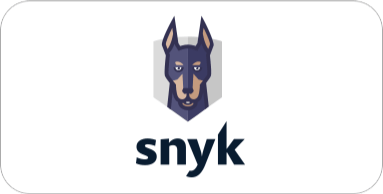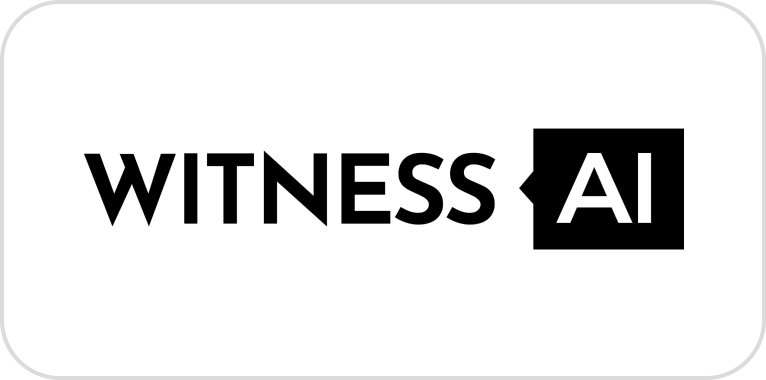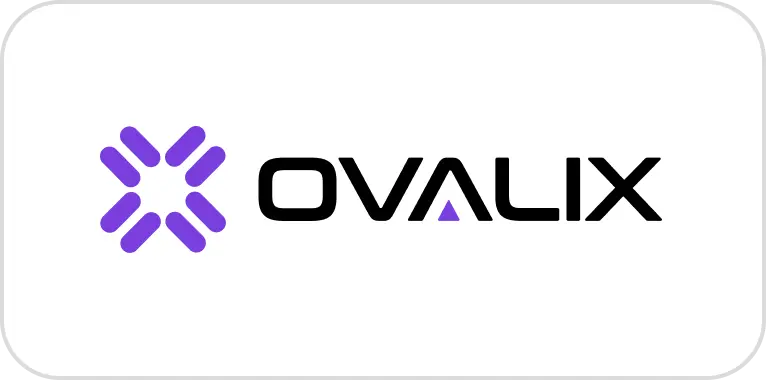
August 19-20, 2025
Virtual Summit: Cybersecurity Implications of AI
AMERICAS | EMEA | APAC
On Demand August 20, 2025
Event Overview
The Virtual AI Summit by ISMG delves into a dynamic exploration of the intersection between AI and cybersecurity. Take a deep dive into ethical considerations, LLM security, and the intricate impacts on privacy and intellectual property. Engage directly with industry leaders to uncover the synergy between human intelligence and AI in fortifying cybersecurity, with a special focus on AI-driven threat detection and risk management strategies. This summit equips security professionals with vital AI insights, promoting transparent governance and hands-on application through sessions dedicated to real-world cybersecurity challenges. Expect a day packed with strategic dialogues, invaluable insights, and collaborative exploration at the forefront of AI and cybersecurity.
View our ISMG Event Experience video to see what your peers are saying about their participation.
Highlight Topics
- Leveraging AI for Defense
- Balancing Privacy and Compliance
- Secure AI Integration
- Combating Threats With AI
- Diverse Industry AI Applications
Seth Frimpong-Manso
Nim Nadarajah
Sandra Pesic
Sarah Matthews
Priya Dank
Kenneth Townsend
Brennan Lodge
Emma Verghagen
Naveen Ullkashi
Shing-hon Lau
Russ Ayers
Jason Smith
Speakers
Thought Leaders on Stage Leading Deep-Dive Discussions
ISMG Summits bring the foremost thought leaders and educators in the security space to the stage, interactive workshops and networking events. Learn from the “who’s who” in cybersecurity passionate about the latest tools and technology to defend against threats.
Tune in to the event, and choose the topics that matter most to you - whether you're looking from outside of your geography, or want to see how thought leaders are navigating the distinct challenges in your region.
North America Track: 10:00 AM - 4:30 PM ET
EMEA Track: 10:00 - 16:30 CET
APAC Track: 10:00 - 16:30 SGT
10:00 AM - 10:30 am ET
AI Under Control: How CISOs Can Govern, Oversee, and Secure AI-Powered Cybersecurity
Artificial intelligence is a developing threat as well as a potent asset in the cybersecurity environment of 2025.
- CISOs must manage bias, preserve auditability, and react to changing regulations—especially in sensitive industries—to limit risks and safeguard reputation as AI transforms cybersecurity.
- From adversarial attacks to the potential for bias in AI systems, CISOs need to adopt strategies to handle the unique risks posed by AI. A balance of AI’s capabilities and human oversight is key to ensuring secure, fair, and reliable decision-making.
- Given AI’s impact on sectors like healthcare, finance, and public safety, CISOs must ensure these systems are explainable and auditable. Prioritizing transparency helps build trust with regulators, customers, and internal teams.

Sekhar Nagasundaram
Global Head of Cybersecurity Threat & Cyberdefense, US

Kirsty Kelly
Group CISO, CFC, EMEA

Hemant Baidwan
CISO, U.S. Department of Homeland Security
10:30 AM - 11:30 AM ET
AI-Driven Leadership: Accelerating Business Growth and Security Innovation
In today's fast-moving digital world, AI has become more than just a tool - it's the catalyst for both business success and robust cybersecurity.
- Addressing Today’s Leadership Challenges- Cybersecurity leaders are under immense pressure—fiercer competition, escalating cyber risks, and shifting customer demands. In this session, we’ll discuss how AI can help leaders stay ahead of these challenges by transforming security and operations.
- AI as a Strategic Game-Changer- AI is not just solving problems; it’s reshaping how businesses make decisions and manage risk. Learn how AI is tackling sophisticated threats like adversarial attacks and enhancing decision-making and efficiency in real-time.
- Evaluating Processes for AI Integration- AI is making an impact across every part of business, but where should you focus? We’ll show you how to evaluate current processes—whether in real-time threat detection, incident response, or customer engagement—and identify where AI can deliver the most value.
- AI for Innovation and Business Growth- AI isn’t just about security—it’s a powerhouse for driving growth. Learn how AI can help your company stay competitive by accelerating digital transformation, sparking product innovation, and creating personalized customer experiences, all while strengthening security defenses.

Kenneth Townsend
CISO, Ingredion, Inc.

JP Morgan
Chief Excecutive Officer

JP Morgan
Chief Excecutive Officer
11:30 AM - 12:30 PM ET
Building Resilience Against the Rise of AI-Powered Cyber Threats
As artificial intelligence continues to reshape industries, it is fundamentally transforming the landscape of cybersecurity.
- Understand the dual role of AI as both a weapon for cybercriminals and a powerful tool for defense. Explore the risks of AI-driven attacks and the opportunities for organizations to leverage AI for proactive threat detection and neutralization.
- Dive into real-world examples of AI-driven cyberattacks, including autonomous botnet networks and deepfake-driven fraud, and discover how these attacks are evolving faster than ever before. Learn the latest countermeasures that are keeping pace with these intelligent threats.
- Learn how to design adaptive, self-learning defense systems that evolve with the threat landscape. Discover strategies for embedding machine learning into threat intelligence and response systems, ensuring your defenses can anticipate and outsmart evolving AI adversaries.
- Explore actionable strategies for CISOs to stay one step ahead of AI-powered adversaries. From AI-driven threat modeling to automated security orchestration, learn how to fortify your digital ecosystem and maintain an agile, proactive defense.
.

Nim Nadarajah
CISO, HOVR

Sandra Pesic
Information Security and Data Privacy Officer, Federal Reserve Bank of Chicago
1:30 PM - 2:30 PM
AI-Powered Code Audits and the New Challenges in Software Security
AI can now scan millions of lines of code in minutes, uncovering vulnerabilities faster than human reviewers - but speed isn't the same as accuracy.
- AI vs. Human Code Audits: Understanding AI’s strengths and weaknesses in vulnerability detection.
- False Positives and Security Debt: How AI-driven tools can overwhelm security teams with non-critical alerts and how to manage the signal-to-noise ratio.
- Adversarial AI in Code Auditing: How attackers are using AI to automate vulnerability discovery and exploit code faster than ever before.
- Best Practices for AI-Assisted Secure Development: How organizations can balance AI-driven automation with human expertise to improve software security.

Vipul Gupta
SVP, Director of Information Security, Frost
2:30 PM - 3:00 PM ET
Safeguarding Your AI Models from Tomorrow's Cyber Threats
In addition to becoming a key component of cybersecurity in 2025, AI is also becoming a popular target for increasingly complex assaults.
- Get the lowdown on new AI-targeted risks, from adversarial attacks to data poisoning. Discover how to defend against these with advanced techniques like adversarial training and robust input validation to keep your AI models sharp.
- Learn how to lock down your AI models with strong access controls, end-to-end encryption, and secure coding practices to prevent unauthorized access, theft, and manipulation.
- Discover how to implement continuous monitoring, anomaly detection, and secure data pipelines to protect against denial-of-service attacks and ensure the resilience and reliability of your AI models.
- Get ahead of the regulatory curve by understanding the global landscape of AI security standards and how to align your AI systems with the latest compliance requirements.

Shing-hon Lau
Senior Cybersecurity Engineer, Software Engineering Institute, Carnegie Mellon University
3:00 pm - 3:30 pm et
Synthetic Identity Fraud and AI's Role in the Fastest-Growing Financial Crime
Synthetic identity fraud has rapidly emerged as the fastest-growing financial crime, with incidents surging in the past year.
- AI-Enhanced Identity Fabrication: How generative AI is being used to construct synthetic identities that evade traditional security checks.
- Impact on Financial Institutions: The financial and reputational damage caused by synthetic identity fraud and the challenges in detection.
- Case Studies: How AI-generated deepfake scams and large-scale fraud operations are exposing vulnerabilities in financial and identity verification systems.
- Preventative Measures: Advanced authentication technologies, cross-industry collaboration, and policy developments aimed at combating this growing threat.

Sateesh Kumar Challa
Head of Digital Transformation Office, Societe Generale
3:30 pm - 4:00 pm et
Unleashing the Potential of RAG
Get ready to delve deeper into the next era of cybersecurity with Retreival-Augmented Generation (RAG), an innovative AI approach that is transforming how organizations detect, respond to, and defend against cyber threats.
- RAG vs. Traditional AI: A New Standard in Cybersecurity: Learn about the critical differences between RAG and traditional AI models. Understand why RAG’s ability to pull in real-time data sets it apart from conventional AI, which often relies on historical, static datasets. Explore how RAG’s dynamic intelligence empowers faster, more precise decision-making, providing a significant edge over older methods.
- Implementing RAG: From Concept to Action: Discover practical steps to integrate RAG into your cybersecurity arsenal. Learn how to select and connect the right data sources, fine-tune generative models, and seamlessly incorporate RAG into your existing security architecture. Gain actionable insights on setting up your RAG-powered system to maximize threat detection, response speed, and overall resilience.
- Advanced Threat Intelligence and Adaptive Defense: Experience how RAG’s real-time retrieval capabilities revolutionize threat intelligence by providing highly accurate, context-aware insights from diverse data streams. Unlike traditional AI, RAG evolves continuously, adapting defense strategies to emerging threats, and turning every new data point into a proactive line of defense.
- Dynamic, Data-Driven Incident Response: Explore how RAG empowers teams to respond to incidents with unprecedented speed and accuracy. Learn to leverage RAG’s AI-driven recommendations to generate tailored playbooks in real-time, enabling your team to outmaneuver attackers with data-backed strategies that change as fast as the threats do.

Taka Ariga
Former Chief AI and Data Officer, U.S. Officer of Personnel Management

Brennan Lodge
Director of Information Security, Manhattan Institute
4:00 pm - 4:30 pm et
AI in Red Teaming and the Future of Offensive Security
AI is transforming red teaming, enabling offensive security teams to conduct more advanced, automated, and scalable attack simulations.
- AI-Driven Adversary Emulation: How AI is being used to simulate APT tactics, automate penetration testing, and enhance reconnaissance.
- AI vs. Human-Led Red Teaming: What AI is improving, where it still falls short, and how to balance automation with human expertise.
- The Security Risks of AI-Assisted Offense: What happens when cybercriminals use AI-driven red teaming techniques to refine their attacks before launching them.
- Defensive Countermeasures: How security teams can adapt to AI-assisted threats and leverage AI for proactive defense.

Russ Ayres
Deputy CISO, Head of Cyber, Equifax
10:00 AM - 10:30 am
AI in Healthcare: Address Bias and Security Risks
AI holds immense promise in revolutionizing healthcare, from fast-tracking research and development to providing earlier diagnoses to personalized treatment plans. However, as AI algorithims increasingly influence medical decision making, concerns about bias and discrimination have become increasingly apparent. These biases can arise from inherent issues in AI datasets, algorithmic design, and implementation, potentially perpetuating disparities in healthcare delivery outcomes.
- Biases in AI Datasets: Understand how biases in training data can lead to unequal healthcare outcomes and discuss the importance of using diverse and representative datasets.
- Algorithmic Design, Implementation, and Security: Analyze how design choices and system vulnerabilities can influence the fairness and safety of AI applications.
- Mitigation and Protection Strategies: Discuss effective strategies to mitigate bias in AI healthcare applications, emphasizing the need for ongoing oversight, ethical standards, and robust security measures to ensure equitable and ethical use of AI in healthcare.

JP Morgan
Chief Excecutive Officer

JP Morgan
Chief Excecutive Officer

JP Morgan
Chief Excecutive Officer

JP Morgan
Chief Excecutive Officer
10:00 - 11:00 CET
AI Under Control: How CISOs Can Govern, Oversee, and Secure AI-Powered Cybersecurity
Artificial intelligence is a developing threat as well as a potential asset in the cybersecurity environment of 2025.
- CISOs must manage bias, preserve auditability, and react to changing regulations—especially in sensitive industries—to limit risks and safeguard reputation as AI transforms cybersecurity.
- From adversarial attacks to the potential for bias in AI systems, CISOs need to adopt strategies to handle the unique risks posed by AI. A balance of AI’s capabilities and human oversight is key to ensuring secure, fair, and reliable decision-making.
- Given AI’s impact on sectors like healthcare, finance, and public safety, CISOs must ensure these systems are explainable and auditable. Prioritizing transparency helps build trust with regulators, customers, and internal teams.

Sekhar Nagasundaram
Global Head of Cybersecurity Threat & Cyberdefense, Elevance Health

Kirsty Kelly
Group CISO, CFC

Hemant Baidwan
CISO, U.S. Department of Homeland Security
11:00 - 12:00 cet
How Generative AI is Reinventing Cybersecurity Across Europe
As cyber threats become more advanced and widespread, breaches are increasingly common across Europe.
- Discover how European enterprises are integrating Generative AI into their security strategies to enhance real-time threat detection and response. AI is becoming a critical tool to spot anomalies, predict attacks, and stop them before they escalate.
- Dive into case studies where AI has successfully mitigated cyber risks. From protecting sensitive customer data in France’s banking sector to securing cloud-based systems in Germany, AI is proving invaluable in defending against the latest cyberattack techniques.
- Understand how Generative AI enables enterprises to scale their security measures as they grow, adapting seamlessly to an ever-evolving digital landscape. Whether it’s across multiple locations or a range of complex systems, AI is the key to agile, robust defense.
- Get ahead of the curve with insights into AI’s next frontier in cybersecurity. From automated incident response to AI-powered threat intelligence, these innovations are transforming how enterprises prepare for and recover from cyberattacks.

Aaron Kalvani
Global AI Transformation Leader, United Nations

Naveen Ullkashi
CISO, Allianz Direct
12:00 - 12:30 CET
Ensuring AI Integrity in EMEA: Addressing Data Governance, Compliance, and Trust in AI
As AI adoption accelerates across the EMEA region, organisations are under increasing pressure to ensure their AI systems are not only innovative, but also secure, fair, and compliant with evolving regulations.
- AI Governance as a Competitive Advantage: Organisations that embed AI governance into their broader data strategy will not only ensure regulatory compliance but also gain a strategic edge by enhancing brand trust, reducing operational risks, and fostering responsible AI adoption. Strong governance frameworks enable businesses to scale AI with confidence, aligning innovation with accountability.
- Mitigating Bias and Ensuring Fair AI: AI models inherit biases from historical data, leading to potential risks in hiring, lending, and customer engagement. By implementing proactive data governance measures such as bias audits, diverse and representative training datasets, and human-in-the-loop oversight, organisations can prevent AI-driven discrimination, safeguard brand reputation, and strengthen ethical AI adoption.
- Balancing AI Innovation with Security & Compliance: As AI security threats grow, including adversarial attacks, model poisoning, and data manipulation, businesses must extend cybersecurity principles to AI systems. Integrating AI security into broader data protection strategies, deploying automated compliance monitoring, and enforcing stringent access controls will be crucial to mitigating risks while staying ahead of regulatory changes in the EMEA region.

Kshitjia Joshi
Vice President (Data & AI Solutions), Chief Data Officer, Nomura International

Kam Karaji
Director Cybersecurity & Risk Management, NFL

Priyanka Dank
Data Scientist & AI Strategist, Airbus
13:30 - 14:30 CET
Scaling AI Successfully: Overcoming Technical and Cultural Barriers for Enterprise Growth
Enterprises encounter considerable challenges in achieving the full potential of AI as its adoption picks up speed.
- Enterprises must overcome siloed data, legacy infrastructure, and organizational inertia to scale AI successfully. This requires fostering collaboration between data scientists, business leaders, and IT teams to ensure AI solutions align with real business needs and deliver measurable outcomes.
- Transparency, fairness, and regulatory adherence must be central to AI development. Organizations need to implement clear data lineage, bias mitigation strategies, and governance frameworks to ensure compliance with evolving data protection laws while maintaining trust with customers and stakeholders.
- AI success hinges on integrating it into enterprise-wide decision-making rather than treating it as a siloed initiative. Companies that embed AI into their strategic frameworks can enhance efficiency, drive innovation, and gain a competitive edge by transforming AI from an experimental tool into a scalable driver of business growth.

Arron Hand
Chief AI Officer, ArcelorMittal

Jason Smith
CDO & AI Strategy Lead, Publicis Media

Emma Verghagen
Global Technology Portfolio & Demand Director
14:30 - 15:00 CET
The State of AI in 2025: Security, Compliance, and Challenges
As we find ourselves halfway through 2025, artificial intelligence has become an integral part of daily business operations, reshaping everything from cybersecurity to compliance frameworks.
- AI-Driven Cybersecurity Threats: As AI-powered social engineering has reached new heights, companies are prioritizing advanced identity verification systems and AI-driven fraud detection to defend against increasingly sophisticated attacks.
- Regulatory Compliance is Now a Must: With the EU AI Act and other regulations in full effect, businesses have had to adapt quickly to ensure compliance with ethical AI practices, data privacy, and transparency.
- Quantum Computing Demands Crypto-Agility: As quantum computing reshapes encryption standards, businesses have moved swiftly to adopt quantum-resistant cryptography to safeguard their data and maintain regulatory compliance.

Thom Schiltmans
Head of Governance, Risk & Compliance, Signify
15:00 - 15:30 CET
Unlocking AI's Potential in Cybersecurity and Embracing Its Complexities
Cybersecurity is at a critical turning point. As cyber-attacks grow in volume and sophistication, traditional defense mechanisms - such as firewalls and antivirus software - are struggling to keep up.
- AI is revolutionizing cybersecurity by automating threat detection and response, dramatically increasing efficiency and reducing reaction times.
- AI enables proactive defense against advanced threats like APTs, ransomware, and zero-day attacks, blocking them before they can cause significant damage.
- Integrating AI into cybersecurity comes with significant challenges, including high costs, ethical considerations, and the need for specialized expertise.
- As AI capabilities grow, the potential for fully autonomous defense systems capable of neutralizing cyber threats without human input becomes more likely.
- Organizations must carefully implement AI into their cybersecurity infrastructure, ensuring effective deployment while addressing resource constraints and ethical concerns.

JP Morgan
Chief Excecutive Officer

JP Morgan
Chief Excecutive Officer

JP Morgan
Chief Excecutive Officer

JP Morgan
Chief Excecutive Officer
15:30 - 16:00 CET
Cyber Resiliency and Ethical AI for a Secure and Responsible Future
Cyber threats are becoming increasingly sophisticated and widespread, posing significant risks to businesses, governments, and individuals.
- Cyber resilience is about not just defending against attacks but ensuring systems can quickly recover and adapt. By embedding Ethical AI into security frameworks, organizations can create smarter, more transparent systems that detect threats and respond effectively. This ensures trust in AI-driven solutions while improving long-term resilience.
- AI models in cybersecurity must be free from bias to ensure fair and accurate threat detection. By adopting ethical AI principles, organizations can create inclusive security systems that work across diverse environments and scenarios. Addressing bias in AI models is key to strengthening the overall security posture and protecting against vulnerabilities.
- Ethical AI doesn’t just improve technology—it helps organizations comply with data privacy laws and global cybersecurity regulations. By aligning AI-driven security tools with these standards, organizations can ensure responsible innovation while maintaining credibility and trust with users. This alignment is crucial for staying ahead of evolving cyber threats and regulatory changes.

Sarah Matthews
Group Responsible AI Manager, The Adecco Group

Eduardo Luis Arana
IT MSE Product Manager - Customer AI, Nestle

Seth Frimpong-Manso
CISO, Access Bank (Ghana) Plc

JP Morgan
Chief Excecutive Officer
16:00 - 16:30 CET
Cybersecurity Showdown: AI vs. Humans - Who's Really in Control?
As cyber threats become more sophisticated, AI is revolutionizing cybersecurity with machine-speed response times, predictive analytics, and automated threat hunting.
- AI: A Cybersecurity Powerhouse or Just a Tool? Unpack how AI automates threat detection, responds at machine speed, and lightens human workloads—while still requiring expert oversight to prevent blind spots and errors.
- Where AI Fails, Humans Prevail. Explore AI’s weaknesses, from adversarial attacks that manipulate machine learning models to the ethical concerns of letting AI make security decisions without human judgment.
- Man + Machine: The Future of Cyber Defense. Debate the best strategies for blending AI automation with human expertise, closing security gaps, and preparing for AI-driven cyber warfare.

Alexander Ermakovich
Head of Account Security, Cybersecurity, Booking.com

Jose Soares
Director of IT, The Capital Hotels, Apartments & Resorts

Stuart Frost
Head of Enterprise Security & Risk Management, UK Government

JP Morgan
Chief Excecutive Officer
10:00 - 10:30 SGT
AI Under Control: How CISOs Can Govern, Oversee, and Secure AI-Powered Cybersecurity
Artificial intelligence is a developing threat as well as a potent asset in the cybersecurity environment of 2025.
- CISOs must manage bias, preserve auditability, and react to changing regulations—especially in sensitive industries—to limit risks and safeguard reputation as AI transforms cybersecurity.
- From adversarial attacks to the potential for bias in AI systems, CISOs need to adopt strategies to handle the unique risks posed by AI. A balance of AI’s capabilities and human oversight is key to ensuring secure, fair, and reliable decision-making.
- Given AI’s impact on sectors like healthcare, finance, and public safety, CISOs must ensure these systems are explainable and auditable. Prioritizing transparency helps build trust with regulators, customers, and internal teams.

Sekhar Nagasundaram
Global Head of Cybersecurity Threat & Cyberdefense, Elevance Health

Hemant Baidwan
CISO, U.S. Department of Homeland Security
10:30 - 11:00 SGT
Defensive AI vs. Offensive AI: Fighting Fire With Fire
As threat actors increasingly harness AI for reconnaissance, evasion and large-scale attacks, security leaders are adopting AI-powered defenses to keep pace.
- Examining how offensive AI is transforming the threat landscape through automation, obfuscation and scale.
- Exploring how defensive AI can be deployed to accelerate detection, reduce response time and anticipate attack patterns.
- Discussing the strategic, ethical and operational implications of an AI vs. AI security paradigm – and its impact on enterprise defense planning.

JP Morgan
Chief Excecutive Officer

JP Morgan
Chief Excecutive Officer
11:00 - 12:00 SGT
Convergence of AI and Cybersecurity: The Way Forward for Enterprise Security From a Policy Perspective
The integration of AI into cybersecurity is reshaping how enterprises detect, respond to and prevent threats.
But the convergence of these technologies raises critical policy questions around governance, accountability and cross-border risks. This session will explore how APAC governments and regulators can design forward-looking frameworks that support AI innovation in security while ensuring responsible use, data protection and regional interoperability.
The session will cover:
- Understanding the unique challenges and opportunities of AI-driven cybersecurity in APAC’s diverse regulatory landscape.
- Exploring policy approaches that promote secure AI adoption while addressing risks such as model exploitation, data misuse and algorithmic opacity.
- How public-private collaboration can shape resilient, future-ready enterprise security frameworks across the region.

JP Morgan
Chief Excecutive Officer

JP Morgan
Chief Excecutive Officer

JP Morgan
Chief Excecutive Officer
12:00 - 12:30 sgt
How Agentic AI is Reshaping Cybersecurity and Incident Response
Agentic AI, characterized by its autonomous decision-making and adaptive learning capabilities, is transforming cybersecurity and incident response by enabling faster threat detection, automated mitigation and predictive defense.
Enterprises are leveraging agentic AI for automated threat hunting, behavioral anomaly detection and incident containment, significantly reducing response time and minimizing damage from cyberattacks. But the rise of agentic AI also introduces challenges, such as ensuring ethical decision-making, preventing adversarial exploitation and maintaining human oversight in critical security operations.
The session will cover:
- Leveraging agentic AI for deception technology and threat simulation;
- Understanding the risks of AI bias and the adversarial manipulation of AI-driven security models;
- Balancing human intuition with AI-driven automation for better decision-making.

JP Morgan
Chief Excecutive Officer

JP Morgan
Chief Excecutive Officer

JP Morgan
Chief Excecutive Officer

JP Morgan
Chief Excecutive Officer
13:30 - 14:30 sgt
How Does AI Continue to Change Cybersecurity: Insights From CISOs
AI is transforming cybersecurity by presenting new strengths and potential weaknesses and wielding a double-edged sword.
It is critical to understand how AI-driven security measures – build with algorithmic precision and human oversight – are evolving to assess and mitigate risks.
CISOs must develop effective processes to integrate AI into cybersecurity operations and manage AI sprawl to ensure governance frameworks meet stringent AI security and privacy regulations.
The session will cover:
- Unique security risks introduced by AI-powered applications.
- Making AI ubiquitous for cyber resiliency.
- Redefining cybersecurity with the use of AI.

JP Morgan
Chief Excecutive Officer

JP Morgan
Chief Excecutive Officer

JP Morgan
Chief Excecutive Officer

JP Morgan
Chief Excecutive Officer
14:30 - 15:00 sgt
Use of AI in Digital Banking: What's at Stake for CISOs?
AI is transforming digital banking by enhancing customer experience, fraud detection and operational efficiency.
But for CISOs, it also introduces new cybersecurity and compliance challenges. AI-driven solutions – from predictive fraud analytics to biometric authentication – require robust security frameworks to prevent data breaches, model manipulation and adversarial attacks.
The rise of deepfakes and synthetic identity attacks also demand continuous monitoring and advanced threat intelligence. CISOs must establish robust AI governance, adversarial AI defenses and zero trust frameworks to ensure secure AI adoption in banking.
The session will cover:
- Regulatory trends shaping AI adoption in financial services.
- Best practices for securing AI-driven banking.
- Ensuring accuracy and fairness in AI-based financial decision-making.

JP Morgan
Chief Excecutive Officer

JP Morgan
Chief Excecutive Officer

JP Morgan
Chief Excecutive Officer

JP Morgan
Chief Excecutive Officer
15:00 - 15:30 sgt
The Rise of Adversarial AI as a Service: A CXO Debate
As AI capabilities advance, so do their malicious uses.
A new threat is emerging: adversarial AI as a service, allowing cybercriminals to rent or buy AI-powered attack tools with minimal technical expertise. This session will feature a live debate on the risks, implications and ethical questions posed by the rise of commoditized offensive AI. How should enterprises, regulators and security leaders respond? Should AI tools be restricted at the source – or will open innovation always outpace regulation?
The session will cover:
- Understanding how AI as a service is lowering the barrier for sophisticated attacks such as deepfake phishing, automated recon and evasion.
- Evaluating the ethical and regulatory challenges of limiting offensive AI capabilities while supporting open innovation.
- Exploring proactive defense strategies to detect, disrupt, and deter AI-enabled threats.

JP Morgan
Chief Excecutive Officer

JP Morgan
Chief Excecutive Officer

JP Morgan
Chief Excecutive Officer

JP Morgan
Chief Excecutive Officer
15:30 - 16:00 sgt
Should APAC Governments Lead Their Own AI Regulations or Follow Global Frameworks for AI Regulation?
Security advocates urge APAC nations to create custom AI and cybersecurity regulations tailored to regional risks and economic conditions.
India’s DPDP Act, Singapore’s AI Verify and Japan’s softer self-regulation present different regulatory philosophies. Opponents argue that aligning with standards such as NIST, ISO or EU AI Act ensures global interoperability and trust. Striking the right balance is critical – not only for innovation and economic competitiveness but also for ensuring trust, interoperability and ethical deployment.
The session will cover:
- Understanding the risks and benefits of leading versus aligning with global AI regulations from a business and policy perspective.
- Exploring how regulatory fragmentation or harmonization may affect enterprise AI strategy, data governance and compliance planning.
- Gaining insights into how regional regulatory decisions may shape APAC’s global position in AI innovation and adoption.

JP Morgan
Chief Excecutive Officer

JP Morgan
Chief Excecutive Officer

JP Morgan
Chief Excecutive Officer

JP Morgan
Chief Excecutive Officer
16:00 - 16:30 sgt
Optimizing IT With AI: Preparing for the Post-Quantum World
As AI continues to transform IT operations, security leaders must also consider the future impact of quantum computing.
The convergence of AI-driven optimization and post-quantum readiness presents both opportunities and challenges. Forward-thinking CIOs and CISOs must create IT environments that are not only agile and efficient today but also resilient against future quantum threats.
This session will explore how AI can streamline infrastructure management, enhance threat detection and improve decision-making, while laying the foundation for cryptographic agility and quantum-safe architectures.
The session will cover:
- Using AI to modernize IT operations, automate decision-making and improve agility across complex environments.
- Building quantum resilience now by identifying vulnerable cryptographic assets and evaluating post-quantum algorithms.
- Aligning IT, security and compliance strategies to ensure long-term readiness for a quantum-powered threat landscape.

JP Morgan
Chief Excecutive Officer

JP Morgan
Chief Excecutive Officer

JP Morgan
Chief Excecutive Officer

JP Morgan
Chief Excecutive Officer
Sponsors




Don’t miss your chance to attend this dynamic impactful event
#ISMGSummit
@ISMG_News
Registration
The Summit Experience
CPE Credits
ISMG Summits offer Continuing Education Credits. Learn informative and engaging content created specifically for security professionals.
Future Events
June 19, 2025
Katie Jenkins
Threat Intelligence and the Dark Web
In this session, a banking security leader and an FBI agent detail:
- What the dark web is – and is not;
- How to gain useful and complete information and apply it;
- The pros and cons of going solo vs. hiring a service.


